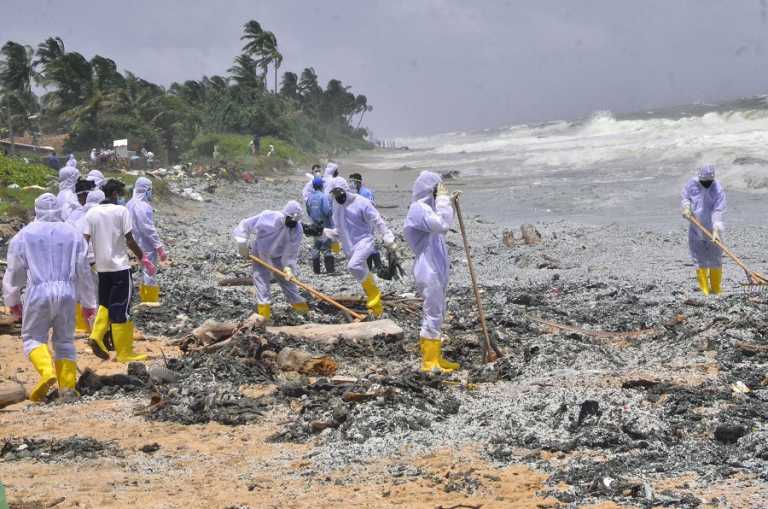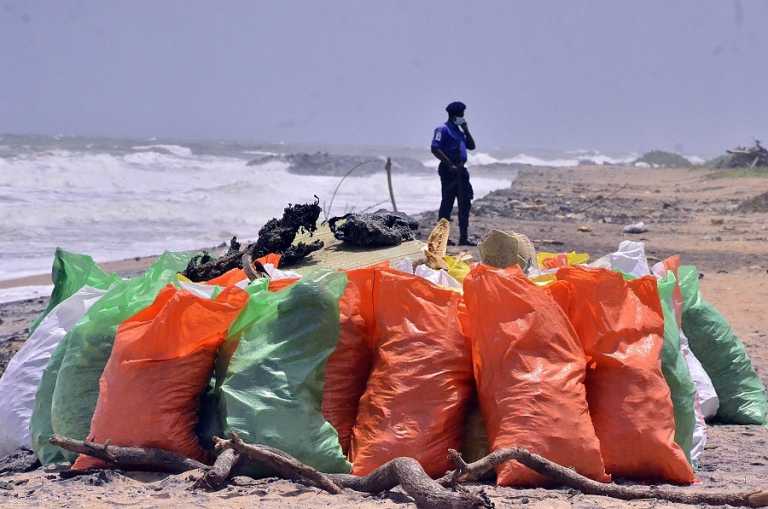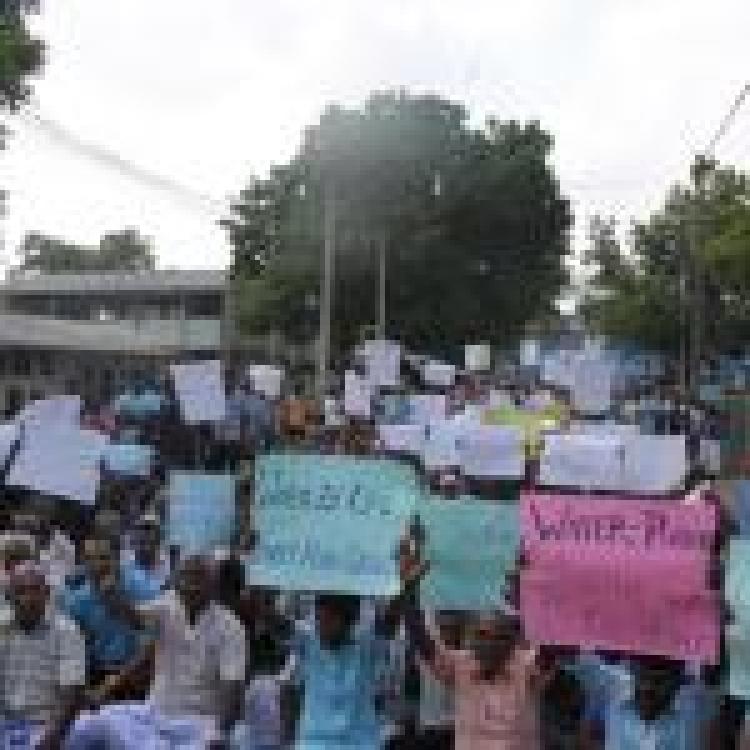
A cargo ship carrying chemicals caught fire spilling microplastics across Sri Lanka’s coastline and causing the worst environmental disaster in the island history.
The fire on MV X-Press Pearl is believed to have been caused by a nitric acid leak that set the ship ablaze on 20 May. Sri Lankan and Indian naval officials have been trying to reduce the flames for over ten days. It has devastated Sri Lanka’s coastline with the debris spread mostly between Negombo and Moratuwa.

The Guardian notes that dead sea turtles, fish and birds have already begun washing up on beaches. Sri Lankan authorities have further cautioned locals to avoid touching any of the debris as it could be highly toxic, and fishing has been banned within a 50-mile radius of the scene.
The ship’s 25-person crew was successfully evacuated however firefighting efforts have been complicated by monsoon winds as well as the highlight flammable and poisonous cargo. The Guardian reports that the ship was carrying 25 tonnes of nitric acid, sodium hydroxide and other dangerous chemicals as well as 28 containers of raw materials used to make plastic bags. This was alongside over 300 tonnes of fuel in its tanks.
Sri Lanka’s Criminal Investigation Department has launched an investigation into the shipwreck with over 900 officers from the military and other agencies have been deployed to assess the damage.




